- Home
- Michael Wallace
Wash Her Guilt Away (Quill Gordon Mystery Book 2)
Wash Her Guilt Away (Quill Gordon Mystery Book 2) Read online
Wash Her Guilt Away
A Quill Gordon Mystery
Michael Wallace
Amazon Readers Praise
The First Quill Gordon Mystery
The McHenry Inheritance
16 Reviews as of 4/30/14
Average rating: 4.1 out of 5 stars
“I really enjoyed reading this story and getting to know the characters. In a very short time, I found myself caring what happened to them. I am a mystery fan, and this definitely was a fun ride.”
—Mountain Mom
“I liked this story and would recommend it to anyone.”
—C. Ross Anderson
“Quill Gordon courts trout, a lady, and justice, and there’s a little ‘catch and release’ applied to all three in this most entertaining murder mystery.”
—Edan D. Cassidy
“The pace and flow of this novel are superior compared to most first novels, and the reader is left hoping for more Quill Gordon stories.”
—Judy Parrish
“I really enjoyed this book. The story content was great and the fishing angle brought back lots of memories of my many hours on the streams and rivers.”
—Bob, Salt Lake City
“Well written good story. Ready for next book about these people. Could be a start to a fun set of books.”
—Tim Smith
Copyright © 2014, Michael Wallace
All Rights Reserved
Without limiting the rights under copyright reserved above, no part of this publication may be reproduced, stored in, or entered into a retrieval system, or transmitted in any form by any means (electronic, mechanical, photocopying, recording or otherwise) without the prior written permission of the copyright owner.
This is a work of fiction and imagination, and all names, places, characters and incidents are either imaginary or used fictitiously. Any resemblance to real people (dead or alive), events, locales, or business establishments is purely coincidental.
Also by Michael Wallace
Fiction
The McHenry Inheritance (Quill Gordon mystery)
Non-Fiction
The Borina Family of Watsonville (California history)
In the spirit of John Dickson Carr
For Nick, in fond remembrance
of our hours fishing
NOTICE TO THE READER: This book contains several descriptive and detailed passages about fly fishing. They are there for the benefit of those who fish, those who enjoy the outdoors, and those who might want to learn more about this pastime. These passages are not germane to the solution of the mystery, and readers who fall into none of the categories above may feel free to skip past them, if so inclined, without missing out on a vital clue.
Table of Contents
Visitor on a Snowy Night
Sunday May 7, 1995
Monday May 8
Tuesday May 9
Wednesday May 10
Thursday May 11
Friday May 12
Saturday May 13
Interlude: Saturday July 15
Epilogue: Wednesday May 15, 1996
Acknowledgements / Author’s Note
About the Author
Song
When lovely woman stoops to folly,
And finds too late that men betray,
What charm can sooth her melancholy,
What art can wash her guilt away?
The only art her guilt to cover,
To hide her shame from every eye,
To give repentance to her lover,
And wring his bosom — is to die.
Oliver Goldsmith, 1730-1774
Visitor on a Snowy Night
“Oh. It’s you.”
“Who did you think it was?”
“I didn’t think it was anybody. After what happened tonight, I wasn’t exactly expecting company.”
A long silence ensued.
“Can I come in?”
“You’re already in,” she said, “but close the door, will you. It’s freezing.” She moved to the nightstand by the bed, picked up a pack of cigarettes, and lit one as she looked out the window at the falling snow.
“Jesus,” she said as she exhaled. “I left Syracuse to get away from this, and now I get it in California in fricking May. Where’s the justice?”
“This is a non-smoking room, you know.”
“So what are you going to do about it — tell the owner? Anyway, we can afford to pay the penalty.”
There was no response to this, so she looked out the window again and shook her head.
“Snow,” she said. “I can’t believe it.”
“I don’t think it’s snowing just to annoy you.”
“God, you sound just like my father.” A pause. “And there’s a reason he and I haven’t been speaking for five years.”
Another awkward silence. The visitor, wearing a heavy parka, slipped a gloved hand underneath it and felt to make sure the bungee cord was there.
“Aren’t you going to ask why I came here?”
“You probably want something from me.” Another deep drag on the cigarette. “Everybody seems to want something from me.”
“Not much, really. Just a little restraint.”
“As in?”
“Tomorrow’s the last day here, right?”
“I’m counting the hours.”
“Then don’t stir up any more dirt than you already have.”
“Who, moi?” she said. “Whatever are you talking about?”
“You know damn well what I’m talking about. You said way too much tonight.”
“What if some of it was true?”
“That doesn’t matter. It’s bound to make people suspicious.”
“So now we’re cutting to the chase. You just want me to help save your sorry ass.”
“I just want you to act decently for the first time in a week. Go quietly tomorrow and don’t make things any worse than they already are. That’s all I’m asking, and it’s not much.”
She took her final puff from the cigarette and looked for an ashtray, but of course there wasn’t one, so she carried it to the toilet, threw it in and flushed, then came back to the main room.
“Save your ass, save everybody else’s ass. Just go quietly like a good little girl. Actually, that gives me an idea. Maybe I should walk into the dining room tomorrow morning when everybody’s having breakfast and say, ‘Excuse me, ladies and gentlemen. I have an announcement to make.’ They’ll all be expecting me to apologize, only instead I’ll tell everything I know. Maybe even make up a story or two to cause a little more trouble. Wouldn’t that be a hoot?”
She laughed almost hysterically, and the laugh decided it for the visitor. The bungee cord was out from under the parka and around her neck before she had finished, turning the last laugh into a choking, panicked snort. Taken by surprise, she never had a chance and flailed ineffectually for a minute or two before she stopped breathing and went limp. Two minutes later, the visitor let the cord and the body drop to the floor.
It was a mistake. The visitor realized that and immediately regretted it, but now the only thing that mattered was not getting caught. With any luck the body wouldn’t be discovered until morning, but there would be a full-scale investigation. Something had to be done to misdirect the sheriff’s detectives when they eventually came. The visitor walked around the room slowly, thinking, for several minutes. The idea came out of nowhere.
“Yes,” the visitor thought. “With any kind of a break, it could work. And what have I got to lose at this point?”
Outside, the snow was still falling.
Sunday May 7, 1995
1
A THICK BLANKET of lead-gray clouds covered Paradise Valley as Quill Gordon and Peter Delaney drove down from the pass. The tall grass of spring, blown about by a biting wind from the northeast, undulated at the side of the road, and the wind also bent the branches and tops of the occasional trees. Gordon, at the wheel of his Cherokee, looked methodically around as he drove, checking to see if anything had changed since his last visit three years ago. Peter, seeing it for the first time, focused on the pervasive gloom, which felt as though it might be permanent. Finally he broke the silence.
“ ‘When the hounds of spring are on winter’s traces …’ ” he said. “Actually, it looks as if the hounds of spring are still in the doghouse. Where it’s warm. Was that Shelley or Keats — the hounds of spring?”
“Swinburne,” Gordon said absently.
“Vile weather in any event. It feels like it’s going to snow.”
Gordon shook his head. “We’re just over thirty-five hundred feet. It doesn’t snow much here in the winter, never mind May.”
“If you say so. Are we getting close to lunch?”
“Only a couple more miles to town.”
“So what’s the plan when we get there? I’m sure you have one.”
“Stop for gas at the Chevron station, which should get us through the rest of the week, then lunch at Rose Malone’s. It’s where everybody goes.”
“Any particular reason it has to be the Chevron station?”
“A little unfinished business, actually,” Gordon said. “Last time I was here, a kid just out of high school was pumping gas and fixing flats. He was thinking of taking law enforcement classes at the community college.”
“So you want to see if he’s still at the gas station?”
“Actually, I’m hoping he’s not. He asked me what I thought, and I said he should take the classes.”
A moment later they reached the sign that said they were entering Eden Mills, population 900. The road dipped slightly into a depression through which Eden River flowed. A hundred yards wide, with only a hint of current, the river normally had a glassy, surface, bright with the reflection of the sky. Today the inky-dark surface was rippled and choppy in the brisk wind. They drove over the river on a bridge that stood just a few feet above it, then up a brief ascent to the town proper.
At the top of the rise Gordon began to turn into the Chevron station, but instead pulled off to the side of the road. The skeleton of the station was still there — the pumps, the service bay, and the small building that used to house the cash register and restrooms — but weeds grew in its pavement, out-of-order signs hung on the pumps, and three of the windows were broken.
They sat in the car, staring at the ruin.
“I hope your kid went off to school,” Peter finally said. He shook his head. “You know a town’s got a tough economy when it can’t support a Chevron station.”
“Let’s eat instead,” Gordon said. “Rose’s is just a half-mile up the road.”
At the far edge of town, on the right side of the state highway, Rose Malone’s sat at one side of a large parking area, while Jake’s mini-mart and gas station (two pumps) was on the opposite side, its interior lights suggesting a warm haven from the gloom and cold outside.
The restaurant was boarded up.
“Now this I can’t believe,” Gordon said. “Last time I had breakfast here, the place was packed.”
“Looks like we’re back to getting gas,” Peter said. “Quick — before Jake’s goes out of business.”
Gordon drove up to the pump and jumped out. Wearing the jeans and flannel shirt he had put on that morning before leaving the hazy sunshine of San Francisco, he was instantly chilled by the wind and damp. He put the nozzle in the gas tank, started the flow, and walked purposefully toward the entrance to the mini-mart. Throwing on a parka, Peter followed him.
There were no customers in the store, only a clerk at the register, a man in his forties with a sallow complexion, wearing jeans and a hoodie, watching an NBA playoff game on a black and white TV perched on the wall behind him. Gordon brought a bottle of water and a Snickers bar to the counter and set them down. The clerk rang up the sale manually — no scanner.
“Two dollars and 19 cents, please.”
Gordon handed him a five and, trying to sound nonchalant, said, “You heard from Rose lately?”
The clerk set the bill next to the register and looked at Gordon more carefully. Then at Peter.
“Creditors?” he asked.
“No,” said Gordon. “No. Just — I used to eat there when I came up to go fishing and I was wondering what happened to her. To the café.”
The clerk nodded and took Gordon’s change from the register, handing it to him across the counter.
“You’re not the only one asking,” he said. “Been the talk of the town so to speak. All anybody knows is she closed up early Wednesday night before Thanksgiving and didn’t open for breakfast on Friday morning. Some of the regulars waited outside for an hour, and it was cold that morning.” He gestured outside with a jerk of his head. “A lot colder than this.”
“Not possible,” muttered Peter under his breath.
“Her house was locked up, and the furniture was all there, but the mortgage was five months delinquent. I’ve had people come in from Cascade Electric, the State Board of Equalization, several restaurant supply companies and the IRS, all looking for a piece of her. So when a stranger comes in and asks, I naturally expect the worst.”
“Thanks,” said Gordon, scooping up the candy bar and water. As he and Peter reached the door, the clerk said:
“Good luck with your fishing. I hear they were biting last week.”
Back at the car, Gordon removed the nozzle, replaced it on the pump and jumped inside. He was shivering after less than a minute outdoors.
“What now, boss?” asked Peter. “I didn’t see much along the road.”
“There’s actually a Main Street that runs off the highway back at the Chevron station. Where it used to be. Let’s check it out.”
Once on Main Street, theirs was the only moving car on the road, so Gordon drove slowly. Nearly every building could have stood a coat of paint; wind-blown trash scudded across the road in front of them; and most of the businesses were closed. An exception was the Eden Mills Hotel and Grill two blocks in, which had a neon “Open” sign in the window. Gordon stopped in front of it, still in the middle of the road.
“What do you think?” asked Peter.
“I tried it a few years ago, and it was kind of dodgy.”
“How about the Mexican place a block back?”
“It’s new. I don’t know anything about it.”
“There were a few pickup trucks in front. My father always said that was a good sign.”
“Sure. Why not?”
Gordon executed a U-turn in the deserted street, and instead of eating at Rose Malone’s as planned, they had lunch at Casa Rosita.
2
INSIDE THE RESTAURANT, it was bright, warm and cheerful. Ten formica tables, their perimeters sealed with serrated metal bands, were well spaced within two small rooms. They were set with white paper placemats, topped with generic, well-worn flatware. A pretty girl of about 14, presumably the owners’ daughter, seated Gordon and Peter at an empty table and returned promptly with a basket of chips and a bowl of salsa. Gordon was pleased to note that the chips were warm.
As they studied the menu (a laminated, double-sided sheet of 8.5x11-inch paper), Gordon cast a glance at his companion. Nothing was going as planned on this trip, and that included Peter being part of it. Peter Delaney was a surgeon in San Francisco, in his early forties and several years older than Gordon. A former basketball player at Cal, Gordon, at six feet, four inches, was trim and fit, with a clean-cut, angular face that women tended to regard as more sympathetic than handsome. Peter, just under six feet tall, had brown hair that was beginning to thin in front, a full beard, showing some salt amid its pepper, a sli
ghtly florid face with a beaked nose, the beginning of a good paunch and a bit of a slouch.
Just over a year ago, Gordon had been diagnosed with a hernia and was referred to Peter for a routine surgery. (“Best hands in the city,” Gordon’s doctor had said.) Gordon had by that point quite his job as a stockbroker in San Francisco, having made enough money from his own investments to live comfortably. That included fishing whenever he liked, and as opening day was only a few weeks away, Gordon asked Dr. Delaney how long it would be before he could fish. It turned out that Peter had taken up fly fishing two years earlier and become passionate about it. By the time of Gordon’s last follow-up visit, they had decided to go on a long fishing weekend in July. They hit it off well and took another weekend trip in early October.
When the Eden River trip was booked in February, Sam Akers, Gordon’s longtime friend, was going to accompany him. But in the middle of April, Sam’s mother-in-law fell down the front steps of her house and broke her hip. Under the circumstances, Sam didn’t feel he should take a week off. Gordon waited three days before calling Peter, figuring a busy physician wasn’t likely to be able to get free on such short notice. To his surprise, the invitation was warmly received.
“Everybody is telling me I’ve been even more of a miserable bastard than usual, and that I should take some time off,” Peter said. “That includes my partners, who’ll probably be willing to cover for me.” And so it was arranged.
The girl returned to take their order. Peter had the lunch combination with cheese enchilada, beef tamale, rice, beans and a beer. Gordon had the combination with chicken taco, chile relleno and a 7-Up. Peter leaned back in his chair after they ordered and stretched his arms.
“So,” he said. “You were telling me earlier that there’s a story behind this place we’re staying. Now would be a good time to hear it.”
“Quite a story,” Gordon said, shoveling a chip and salsa into his mouth. The waitress returned with a perspiring bottle of beer for Peter and Gordon’s soft drink in a dappled plastic glass with a straw. Gordon took a sip and began.

 Crowlord (The Sword Saint Series Book 2)
Crowlord (The Sword Saint Series Book 2) Crowlord
Crowlord The Red Sword- The Complete Trilogy
The Red Sword- The Complete Trilogy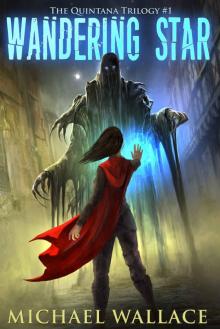 Wandering Star (The Quintana Trilogy Book 1)
Wandering Star (The Quintana Trilogy Book 1)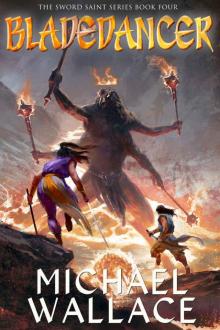 Bladedancer
Bladedancer Sword Saint
Sword Saint The Alliance Trilogy
The Alliance Trilogy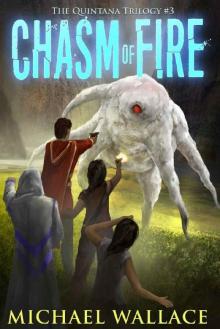 Chasm of Fire
Chasm of Fire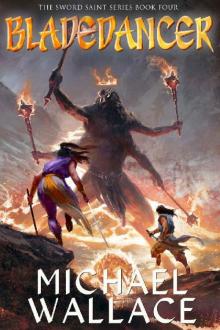 Bladedancer (The Sword Saint Series Book 4)
Bladedancer (The Sword Saint Series Book 4) The Devil's Deep
The Devil's Deep Shadow Walker (The Sword Saint Series Book 3)
Shadow Walker (The Sword Saint Series Book 3) Starship Blackbeard
Starship Blackbeard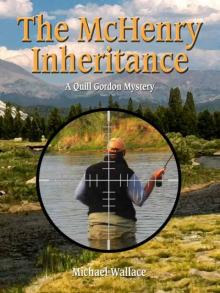 The McHenry Inheritance (Quill Gordon Mystery Book 1)
The McHenry Inheritance (Quill Gordon Mystery Book 1) Sun King (The Void Queen Trilogy Book 3)
Sun King (The Void Queen Trilogy Book 3)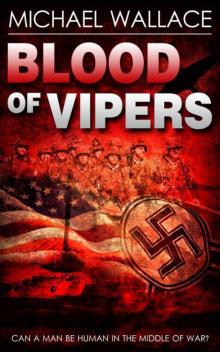 Blood of Vipers
Blood of Vipers Righteous - 01 - The Righteous
Righteous - 01 - The Righteous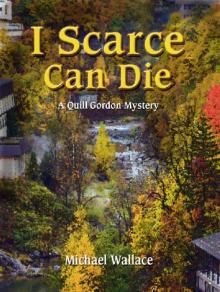 I Scarce Can Die (Quill Gordon Mystery Book 5)
I Scarce Can Die (Quill Gordon Mystery Book 5)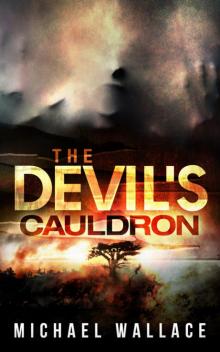 The Devil's Cauldron
The Devil's Cauldron The Wicked (The Righteous)
The Wicked (The Righteous) Crow Hollow
Crow Hollow Righteous03 - The Wicked
Righteous03 - The Wicked Righteous02 - Mighty and Strong
Righteous02 - Mighty and Strong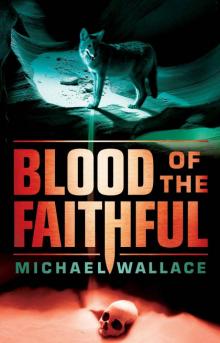 Blood of the Faithful
Blood of the Faithful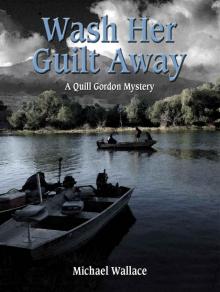 Wash Her Guilt Away (Quill Gordon Mystery Book 2)
Wash Her Guilt Away (Quill Gordon Mystery Book 2) The Kingdom of the Bears
The Kingdom of the Bears The Emerald Crown (The Red Sword Trilogy Book 3)
The Emerald Crown (The Red Sword Trilogy Book 3) The Dark Citadel
The Dark Citadel The Warrior King (Book 4)
The Warrior King (Book 4) Rebellion of Stars (Starship Blackbeard Book 4)
Rebellion of Stars (Starship Blackbeard Book 4)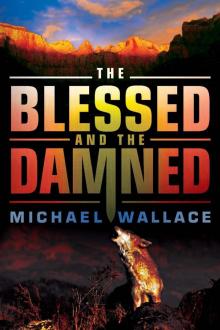 Righteous04 - The Blessed and the Damned
Righteous04 - The Blessed and the Damned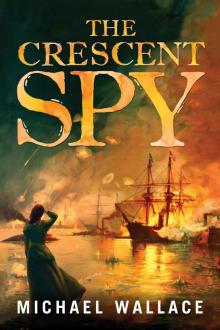 The Crescent Spy
The Crescent Spy Queen of the Void (The Void Queen Trilogy Book 1)
Queen of the Void (The Void Queen Trilogy Book 1)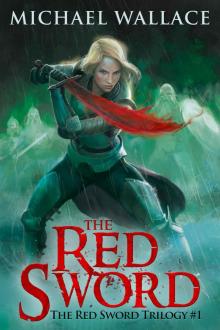 The Red Sword (The Red Sword Trilogy Book 1)
The Red Sword (The Red Sword Trilogy Book 1) The Sentinel (The Sentinel Trilogy Book 1)
The Sentinel (The Sentinel Trilogy Book 1)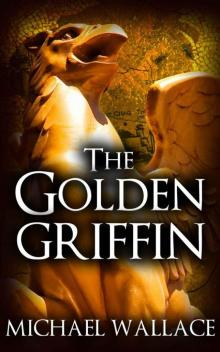 The Golden Griffin (Book 3)
The Golden Griffin (Book 3)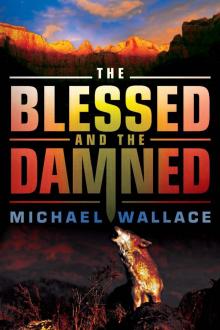 The Blessed and the Damned (Righteous Series #4)
The Blessed and the Damned (Righteous Series #4)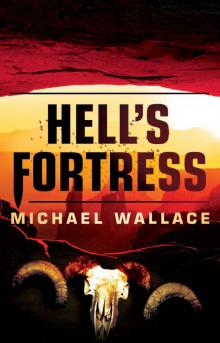 Hell's Fortress
Hell's Fortress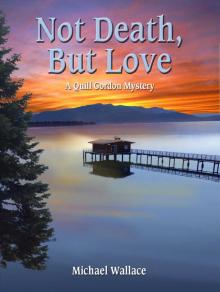 Not Death, But Love (Quill Gordon Mystery Book 3)
Not Death, But Love (Quill Gordon Mystery Book 3) Destroying Angel
Destroying Angel The Free Kingdoms (Book 2)
The Free Kingdoms (Book 2) Dragon Quadrant (The Sentinel Trilogy Book 2)
Dragon Quadrant (The Sentinel Trilogy Book 2) Shattered Sun (The Sentinel Trilogy Book 3)
Shattered Sun (The Sentinel Trilogy Book 3)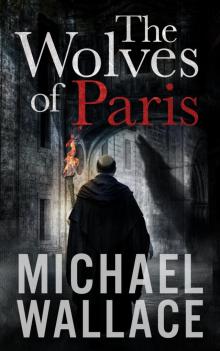 The Wolves of Paris
The Wolves of Paris Lords of Space (Starship Blackbeard Book 2)
Lords of Space (Starship Blackbeard Book 2) Dreadnought (Starship Blackbeard Book 3)
Dreadnought (Starship Blackbeard Book 3) The Village of Dead Souls: A Zombie Novel
The Village of Dead Souls: A Zombie Novel The Black Shield (The Red Sword Book 2)
The Black Shield (The Red Sword Book 2)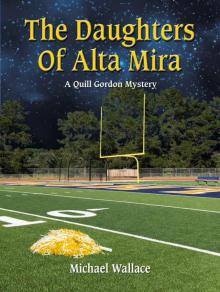 The Daughters Of Alta Mira (Quill Gordon Mystery Book 4)
The Daughters Of Alta Mira (Quill Gordon Mystery Book 4) Mighty and Strong (The Righteous)
Mighty and Strong (The Righteous)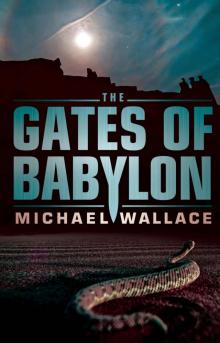 The Gates of Babylon
The Gates of Babylon